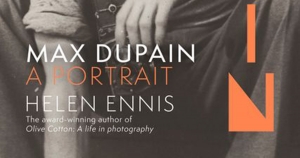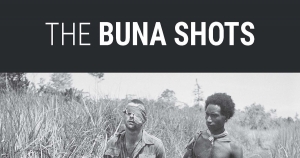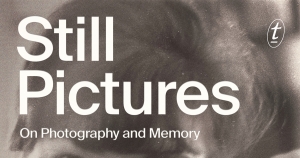Photography
Elisa deCourcy reviews ‘Max Dupain: A portrait’ by Helen Ennis
Max Dupain’s photographs are well known to Australian audiences. The monumentally cast upper body of his friend Harold Savage, prostrate on the sand is, as Helen Ennis notes in her new biography of Dupain, the ‘most reproduced photograph in Australian history’. The Sunbaker’s ubiquity has seen it configured, well beyond Dupain’s intention, as ‘an ideal of Australian masculinity’. More recently, it is a photograph that has been restaged by artists as a form of creative and cultural critique.
... (read more)Kevin Foster reviews ‘The Buna Shots: The amazing story behind two photographs that changed the course of World War Two’ by Stephen Dando-Collins
Has any photograph ever changed the course of a war? It is a claim as old as photography itself, expressing a profound faith in the power of the image to communicate and move. However, like most religious statements, it does not stand up to rational scrutiny. It relies on the coincidence of two highly improbable phenomena. First, it assumes that everybody sees the photograph in question. This was a more contingent possibility in the analogue age, and it is even less certain in our image-saturated times.
... (read more)Photography has held humanity in its thrall since its nascent years. Celebrated and contested, the photograph is said to have inherent power, making it both a vital, and also dangerous, medium. This exceptional and ambitious new exhibition at the NGV, Photography: Real and Imagined, illuminates why we have an unwavering fascination.
... (read more)I find myself going to view Nan Goldin’s legendary series of photographs, The Ballad of Sexual Dependency, with trepidation. Lying at the heart of these works is a renowned image, Nan after being battered, 1984. Taken by her friend, Suzanne Fletcher, it shows a youthful Goldin with big 1980s hair, dangling silver earrings, a necklace of pale beads. She gazes into the camera, her left eye swollen and bloodshot, her right eye framed by a half-healed bruise.
... (read more)This week, on the ABR Podcast, we look at a major exhibition at the Art Gallery of South Australia, ‘Andy Warhol and Photography: A Social Media’. Ten years in the making, ‘Andy Warhol and Photography’ demonstrates the multiple ways in which Warhol’s aesthetic anticipated the social-media world we live in today, perhaps even helping give rise to it. Patrick Flanery is a novelist and Chair of Creative Writing at the University of Adelaide.
... (read more)Janet Malcolm knew the difference between the remembered thing and the thing itself. Her writing life and 1984 masterpiece, In the Freud Archives, explored that crevice, asking: is what really matters how we experience life, not life itself?
... (read more)Gary Werskey reviews 'Visions of Nature: How landscape photography shaped settler colonialism' by Jarrod Hore
‘Country’ – the land of Indigenous peoples (minus their Dreamings) – is the great subject of settler-colonial art, an act of appropriation in which the dispossession of its original custodians is rendered invisible. As Jarrod Hore establishes beyond doubt in Visions of Nature, it was landscape photographers who proved to be one of the more significant cultural agents of settler colonialism across the Pacific Rim in the second half of the nineteenth century. What his important study reveals even more clearly is just how much they and their images were shaped by the times and societies in which they worked.
... (read more)Max Dupain, one of Australia’s most accomplished photographers, was filled with self-doubt. He told us so – repeatedly – in public commentary, especially during the 1980s, in the last years of his life. It is striking how candid he was, how personal, verging on the confessional, and how little attention we paid to what he said, either during his lifetime or since (he died in 1992, aged eighty-one).
... (read more)Alison Stieven-Taylor reviews 'Olive Cotton: A life in photography' by Helen Ennis
A lover of photography since childhood, by the time Olive Cotton, who was born in Sydney in 1911, was in her twenties she was already creating the pictures that were to define her as one of Australia’s foremost women photographers, although this would not be acknowledged until the 1980s. Apart from the photographs she made, Cotton left little material trace of a life that spanned nine decades (she died in 2003). This lack of physical evidence presented a challenge for biographer Helen Ennis, a former curator of photography at the National Gallery of Australia and an art historian, who has nonetheless managed to weave a compelling, if at times diaphanous, narrative.
... (read more)









